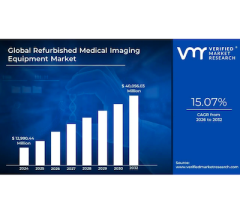One year after the adoption of the Affordable Care Act (ACA), a new study by Health eCareers found that the effect of the ACA's new policies ranked as the third most pressing concern for healthcare recruiters and hiring managers, just behind staff turnover and the projected physician shortage.
It was anticipated that the ACA would result in the creation of specific new roles in the healthcare industry, but now many recruiters say jobs are often necessitated more by the implementation of the legislation - and the resultant increase in demand for care - than by specific ACA mandates. For instance, one company, LifePoint Hospitals, a leading hospital company with 70 hospitals in 22 states, already had plans in the works to add positions that happen to be complementary to the ACA.
"We established a more focused primary care strategy in anticipation of the ACA," said Jess N. Judy, senior vice president, provider relations, for LifePoint. "But we did not create any new roles as a result of the ACA."
According to Judy, the well-documented trend of an aging U.S. population (and the associated increased demand for health services) along with expanded accessibility to insurance coverage will likely spur hiring and growth of the healthcare workforce more so than ACA requirements. For instance, in response to the uptick in patient demand, "we recently organized a more formal approach to supporting our hospitals with dedicated population health resources," Judy said. "Also, we may be adding some care management staff to support chronic disease patient management."
Planning for Seamless Staffing
Whether by mandating new positions or simply increasing the number of patients, there's no denying that healthcare legislation like the ACA is having an effect on healthcare hiring. Health eCareers' industry partners share four concepts to keep today's smart recruiters aligned with the ACA:
1. Integrate technologists across the continuum of care
"The most significant change to healthcare technology is what I refer to as "˜convener technology,'" said Judy. "Assembling the required functionality for integration across the continuum of care is still in the nascent stages." However, he acknowledges that rapid deployment of functionality both by legacy electronic medical records companies and third-party bolt-on systems is already accomplishing some of the needed integration.
Judy predicts the increased demand for services will continue to stretch the capacity of the current healthcare delivery system. He envisions the development of more creative, technology-based delivery models, such as telehealth and e-visits, to evolve from the pressures associated with this crunch.
2. Hire more case management professionals
The shortage of skilled care managers and the introduction of new penalties for hospitals who readmit patients within 30 days have led to the creation of an important new role in healthcare: case managers.
"Physicians are becoming hospitalists who focus on inpatients and prepare them for discharge. So it falls to case managers to keep a patient's physiological parameters within normal limits," said Suzanne Richins, DHA, RN, FACHE, senior vice president for healthcare at Global Targeting, a strategy and operations advisory firm.
The continuum of care requires advanced practice professionals who constantly review data and communicate with the patient, Richins explains. Not only can this reduce the number of readmissions, but it also creates happier, better-informed patients. "Patients like advanced practice nurses because they often have more time to spend with the patient and do a better job answering their questions," Richins added.
3. Keep hiring more educated nurses
"Both hospitals and practices are hiring advanced practice nurses to augment physicians," Richins said, which increases efficiency and productivity in clinics and offices. Evaluating patients is not the only care nurses provide: nurse informaticists are in short supply and high demand as data becomes the key component in process improvement, quality improvement, and management decisions.
Knowledge about the medical side, the bedside, and the data side allows more nurses to take responsibility for project management and implementation of electronic health records and modules, including updates.
4. Emphasize data
LifePoint's Judy confirms that his system is placing an increased emphasis on data capture - an initiative that is at least three years old. "We have committed significant capital to IT, and we continue to evaluate how to best leverage existing systems to access both the clinical and business data needed to efficiently manage our business," he said.
Judy acknowledged that because of the diverse needs of LifePoint's varying markets, there will not be a one-size-fits-all system. However, the need to aggregate data and remove variation in processes and clinical care is a key component of its strategy.
"Strengthening business and clinical analytics are a necessity as we transition to value-based care as required by the ACA," he added. "Real-time clinical data is imperative to effectively manage the continuum of care."
For more information: www.healthecareers.com


 February 04, 2026
February 04, 2026 









